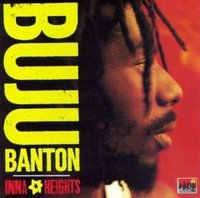
From The Chicago Tribune…
--------------------------------------
Anti-gay lyrics in reggae targeted
Buju Banton, others drawing protesters at concert appearances
By Althea Legaspi
For more than a decade, several reggae artists have been sparking controversy with songs that contain anti-gay lyrics. Beenie Man, Capleton and Buju Banton are among those accused of writing violent, homophobic lyrics, and several gay-rights groups have successfully pressured promoters, leading to concert cancellations.
Banton is perhaps the most controversial, having been accused and later exonerated earlier this year, in a case in Jamaica that involved an attack on a group of gay men. But it's the performer’s 1992 song, “Boom Bye Bye,” notorious for its lyrics about murdering gay men, that continues to draw fire.
Banton is scheduled to perform Wednesday at House of Blues, and two gay-rights organizations, Gay Liberation Network and Black LGBT & Allies for Equality, have planned to protest the show.
“This is the fourth performer in four years that House of Blues has scheduled that’s from this new reggae genre called Dancehall,” said GLN’s Bob Schwartz. “These are Jamaican singers who have published songs that in very explicit ways call for the killing of lesbian and gay people.”
In July the same organizations protested rapper DMX’s performance at House of Blues. Two years prior, GLN protested the House of Blues Chicago performance of another rapper, Capleton,leading to the cancellation of subsequent performances at House of Blues outlets in Los Angeles and New Orleans. That same year, the group’s efforts led to R.J. Reynolds’ pulling tour sponsorship for Beenie Man, spurring the cancellation of several tour dates nationwide, including one at Chicago’s House of Blues.
“Two years ago we made numerous efforts to contact [House of Blues.] … We were rebuffed; they absolutely refused to meet with us, to talk about the issues,” Schwartz said.
‘Not what we stand for’
However, House of Blues senior vice president of marketing Jack Gannon said he has met with several concerned organizations at the company’s L.A. corporate headquarters. “We’re not in a place where we support discrimination or violence of any kind -- and it’s not what we stand for,” Gannon said.
“Our mission statement is really committed to peace and harmony and so forth. But at the same time we have a business responsibility to provide environments for artists to demonstrate and perform their trade. … We can’t be in the business of censoring their content. If the organization has challenges or concern with the content, they really should speak directly to the artist and talk to them about the content that they’re performing.”
In August, GLN contacted Live Nation, which is acquiring House of Blues, requesting that it intervene with current management to cancel Banton’s performance. In a statement, a Live Nation representative said, “Although Live Nation has entered into an agreement to acquire House of Blues, we do not currently own House of Blues and the deal is still subject to a number of closing conditions, including regulatory approval. As such, we are not currently in a position to exert any type of control or influence over any aspect of House of Blues.”
Banton converted to the Rastafarian religion in the mid-‘90s, and since then his lyrics have been primarily socially conscious. He has not recorded another homophobic track but has reportedly performed “Boom Bye Bye” since his conversion.
Banton also remains unrepentant. In 2003, when the U.K.’s Guardian asked if his opinion had changed, he responded, “If I’d changed my opinion, would it change the song? So why should you go back there? That’s the past. I’ve been down that road a thousand times and I refuse to go there again with anyone.”
Not likely to recant
It’s unlikely Banton would recant the views expressed in the song because Rastafarianism is generally intolerant of homosexuality. More recently he was adamant that people not tell him what he can and can't express, likening it to slavery and saying, “If you don’t like it, don’t listen to it” during an interview with BBC Radio this summer.
Banton was not available for comment. Banton’s publicist, Tracii McGregor, said Banton was 15 when he wrote the song and that it was taken out of context.
“In Jamaica you regularly, in the newspaper, you hear reports of … older men raping young boys, or taking advantage of young boys, or … trying to … bribe young boys who live in the streets … so they can take advantage of them sexually,” McGregor said. “This is not anything new. So Buju actually wrote that song in response to an article that was on the cover of a paper in Jamaica, and that’s where that came from.”
The song was 4 years old by the time it was released in the United States. In July his concert in Brighton, England, was canceled because of protests, and a subsequent protest in Copenhagen led to the venue owners’ requesting that Banton not express any homophobic views during the show. The singer reportedly complied.
GLN plans to protest until anti-gay music becomes a thing of the past. “What we would want is for these artists [to] issue an apology for harm that may have resulted from their lyrics,” Schwartz said. “[And] a commitment to, one, not perform those [homophobic] songs anymore and, two, to not release any recordings going forward that contain those [types of] songs.”

No comments:
Post a Comment